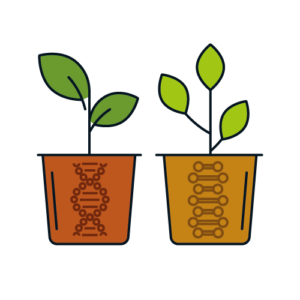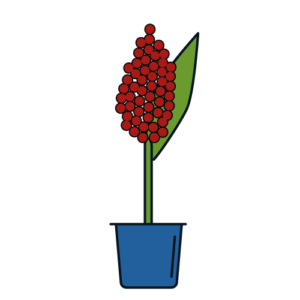Climate: Anticipating Our Future Weather


What should we expect, in terms of our climate? How can we adapt our agriculture, in the coming years? What role will sorghum play in the medium run? To Serge Zaka, Agroclimatology Doctor, one must observe, anticipate, and respond quickly.
Heat and Drought: a Record Summer in Europe
The 2022 summer has been the hottest ever recorded in Europe and China, and the second hottest in North America and Asia1. These weather conditions – which have been disastrous throughout the world, for many crops – are however not likely to improve.
“At a warming rate of 1,5-2°C per year, 2022 will be looked at as a «normal» year, in 2050. In other words, today’s extreme temperatures will be tomorrow’s norm”, Dr. Serge Zaka explains. “Extreme climate events will therefore exceed by far what we have recorded this year.” In the agroclimatologist’s view, it is imperative to think about it today and build an adaptation strategy, both for the medium, and for the long, term. In that sense, several paths exist that are worth exploring, and that can help us prepare tomorrow’s agriculture.
“The 2022 temperatures will be the norm, in the coming years. It is imperative to adapt.”
Multiple Solutions to Develop in Parallel

1. Create New Varieties
“The genetics of the existing species can help us develop new and more tolerant varieties. However, one of the factors that hinder that process is lack of time, since it takes seven to ten years for a new variety to enter the market – and that is slow, compared to the global warming rate.”
 2. Introducing New Crops
2. Introducing New Crops
Sorghum, millet… These species are better adapted to the coming climate conditions and as such, they are currently on the rise. “We find ourselves in the midst of a gradual climatic transition, where sorghum becomes ever so relevant”, Serge Zaka explains. Against the backdrop of the current droughts, sorghum production decreases, while corn production plunges.” Sorghum is therefore an important transition plant, especially in extreme environments, as it behaves better on dry and shallower soils.
“That said, when water is available, sorghum produces much less than corn. While it is safe to say that thirty years from now, sorghum will produce more than corn in shallow soils, we must work on creating a relationship of complementarity between the two crops in the long term.”

3. Develop Market Outlets
Pour l’agroclimatologue, le travail sur ces « nouvelles » espèces doit s’accompagner d’un développement de leurs filières économiques : « Il faut que l’État puisse investir dans ces nouvelles filières et que les industriels s’en emparent », ajoute Serge Zaka.
“We must develop a long-term complementarity between corn and sorghum.”

4. Encourage Soil Conservation Agriculture
“Soil conservation agriculture will allow for a soil that is more «alive» and can retain more water. In that sense, we can mention extended crop rotations or permanent cover crops, for example.”
 5. Invest in Digital Agriculture
5. Invest in Digital Agriculture
“We need to be better managers of our water resources and nitrogen deposits; we need to anticipate and prevent short- and long-term climate hazards. An improved digital agriculture will provide better tools to farmers and help them protect their crops”, Serge Zaka explains. “Today, apps such as «Prevent» by ITK allow one to predict frost and take the necessary actions to prevent production losses.”
“There are several solution possibilities, but there is no single solution that can solve all problems”, the researcher concludes. We must work on all solutions at the same time, in order to secure a transition towards tomorrow’s climate. We must start thinking about it today, not at the eleventh hour, in 2050. These solutions should be developed in the near future, for future generations.”
[1] Source : National Centers for Environmental Information (NCEI), September 14, 2022 (https://www.ncei.noaa.gov/access/monitoring/monthly-report/global/202208).
[Thread] J'ai beau apporter toutes les nuances, préservant la complexité, sur les sujets agricoles et climatiques (#sécheresse)… Cette volonté a réduire les débats en une réponse binaire (oui/non) me met en colère.
Voici une mise au point claire entre le maïs et le #sorgho. pic.twitter.com/dKwkaAldx1— Dr. Serge Zaka (Dr. Zarge) (@SergeZaka) August 25, 2022












